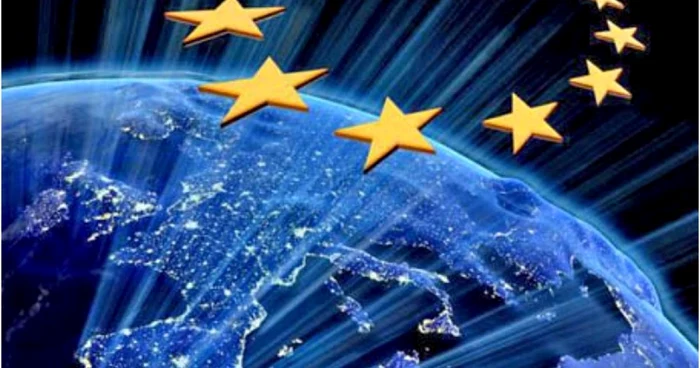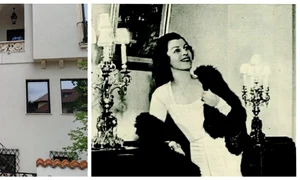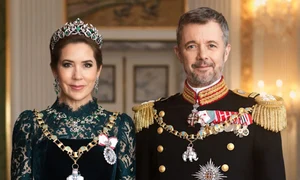
Grupul Vişegrad prezintă viziunea comună asupra viitorului Europei. Noi, alături, mai aşteptăm
0
Ţările din Grupul Vişegrad au prezentat un document privind poziţia asupra viziunii lor comune asupra viitorului Europei. Momentul ales nu este deloc întâmplător, deoarece, după întâlniriea de la Paris Macron-Merkel şi după discursul programatic al lui Macron de la Davos, apare foarte limpede că Statele Membre sunt puse sub o presiune imediată.
Trebuie să-şi definească propriile viziuni naţionale (sau regionale, în cazul Grupului Vişegrad) care să se fie integrate rapid într-un proces a cărui definiţie a început deja, cu linii de forţă proiectate în linii mari de motorul franco-german, dar nu este încă pe deplin aşezată în formulele juridice şi legislative care vor da concreteţea viitoarei construcţii.
A lipsi într-o asemenea dezbatere, a nu fi prezent în negocieri, a nu provoca nicidecum o discuţie aprofundată în propria ta ţară care să dea garanţia că vorbele ristite la o reuniune sau alta au în spate un larg acord politic sustenabil, echivalează cu autoizolarea de proiect.
Foarte mulţi observatori, mai ales negociatorii desemnaţi oficial sau cei care lucrează în zona întâlnirilor discrete, aşteptau cu un interes nedisimulat documentul celor de la Vişgrad, mai ales că, la nivel public, se crease o senzaţie de rupură profundă între ţările din V4 şi instituţiile europene, chiar o încredinţare deplină că din această presupusâ stare de lucruri urmează să apară disoluţia întregului proiect european. O percepţie întreţinută cu multă grijă şi cu fonduri masive aferente de puterile neprietene Uniunii Europene, cele interesate de exploatarea oricărei falii posibile pentru a induce euroscepticismul şi chiar politicile anti-europene. Documentul de poziţie prezentat de ţările din Grupul Vişegrad trebuie lecturat în acest context, iar soluţiile propuse, demersurile invocate, criticile şi direcţiile pentru viitor sugerate arată că, departe de a fi obosit şi cosumat, tocmai acest proces european constituie mcadrul de referinţă în care aceste ţări doresc să-şi imagineze viitorul pe termen lung.
Este, din punctul meu de vedere, o demonstraţie despre cum se joacă la nivelul înalt al politicilor europene, cum dă roade ştiinţa guvernării bine învăţată la acele şcoli unde sunt trimişi să se pregătească mulţi dintre consilierii liderilor europeni. Şi, poate, cum arată aceste lecţii aplicate în practică atunci când este vorba despre definirea raportului strategic de forţe, ultra-sensibil pentru că defineşte unde se află "linia roşie" a cărei depăşire semnifică intrarea în zona conflictuală.
Chiar aşa, unde se află „linia roşie“? Citiţi acest document şi amintiţi-vă în acelaşi timp de toate poziţiile liderilor din Vişegrad, cel puţin critice faţă de politicile birocraţiei din Bruxelles. „Linia roşie“ este între aceste poziţii şi o eventuală opoziţie sistemică de tip britanic, cea care a dus finalmente la BREXIT: nimeni nu mai vrea un asemnea experiment, nimeni nu vrea să-şi asume riscul de a refuza proiectul european poate, pur şi simplu, văzând avantajele rămânerii în sistem versus poziţia pe care ar presupune-o imposibilă autarhie sau aderarea la spaţiul din est, revenind direct în zona de influenţă a Rusiei neo-imperiale. De aici, afirmaţia absolut limede pe care o fac acum liderii Grupului Vişegrad care consideră că actuala dezbatere privind viitorul Europei „este binevenită deoarece cred că UE este cel mai bun cadru pentru a face faţă şi a rezolva atât provocările interne cât şi cele externe. Suntem gata şi dorim să cooperă, în spiritul Agendei Liderilor şi pe bază consensuală pentru întărirea unităţii şi pentru a preveni fragmentarea UE“.
Sunt 6 mari puncte în care se concentreză programul Vişegrad. Foarte interesant că, la primul punct "Să păstrăm rezultatele deja realizate", este susţinută fără rezerva ideea unei „extinderi a procesului de integrare prin apariţia unor noi zone comune care să presupună întărirea securităţii şi a competitivităţii sau prin adâncirea cooperării în zonele deja existente precum Uniunea Economică şi monetară“. Interesant, mai ales că la orizont se conturează o discuţie despre un posibil spaţiu comun al justiţiei şi afacerilor interne... „Unitatea în Diversitate“ presupune „păstrarea şi întărirea unităţii Uniunii, cu respectarea valorilor noastre comune europene, a identităţilor şi specificităţilor fiecăruia dintre Statele Membre. O Europă puternică poate fi alcătuită doar din State Membre puternice, sprijinită de instituţii comunitare eficiente care să-şi îndeplinească rolul definit în Tratate. Instituţiile UE ar trebui să trateze echitabil Statele Membre şi să acţioneze în mod strict în limitele competenţelor conferite de Tratate". Cu sublinierea esenţială că "va trebui respectat dreptul Statelor Membre de a introduce reforme interne ce ţin de competenţele lor“.
Reluând o serie dintre ideile din documentul de reflecţie de la Davos, liderii din G4 răspund acum foarte clar semnalelor date de instituţiile europene privind nevoia de ridicare a nivelului competiţional al viitorului proiect european printr-o "îmbunătăţirea sinergiei între politicile naţionale şi cele europene...o creştere a convergenţei sociale şi economice între Statele Membre...avem nevoie de Piaţa comună Digitală Europeană...doar atunci UE ca putea să contureze transformarea digitală şi să maximizeze beneficiile".
Liderii din Grupul Vişgrad alocă, aşa cum e firesc, o importanţă deosebită procesului de "legitimitate democratocă" din cadrul UE, anunţân punctele de dezacord cu unele iniţiative aşa cum ar fi cea a "listelor trans-naţionale" pentru viitorul Parlmanet European pe care-l văd ca având mai puţini membri, cu apelul ca marea dezbatere asupra cadrului instituţional ce va avea loc luna viitoare să ia în seamă raportul mereu criticat între forţa instituţiilor fin Bruxelles şi pondereera organismele naţionale pe temele "strategice vitale" solicitându-se decizii doar la nivel de consens în Consiliul European. Sau introducerea unui sistem tip "cartonaş roşu" prin care să se asigure un control democratic al procesului legislativ exercitat de parlamentele naţionale la nivel de UE. În fine, în consens cu foarte multe alte State Membre, cei din Vişegrad solicită „elaborarea unui consesn sustenabil pe baza unui demers comprehensiv în privinţa politicilor migraţie şi azil bazată pe principiul unei protecţii a frontierelor care să fie efectivă, responsabilă şi aplicabilă, evitând cotele obligatorii care sunt ineficiente şi deja au divizat Europa“.
Mi-aş fi dorit să văd un asemnea document gândit şi asumat de liderii reprezentativi ai clasei noastre politice, enumerând priorităţile româneşti, cu punctele noastre de vedere asupra problemelor majore, poziţionările noastre în ce priveşte problemele sensibile, sugestiile pentru funcţionarea mai bună a sistemelor existente. Nu avem acum un asemenea document şi e foarte greu de presupus că, în condiţiile actuale, Parlamentul va avea timpul să se ocupe de o asemenea dezbatere, fundamentală pentru alţii şi pentru noi încă un moft cu fundă. De ce oare? Chiar nu ştiu.
Sigur însă că o asemenea viziune naţională argumentată ar fi fost, mai este încă, nu numai necesară ci şi vitală pentru reprezentarea corectă şi sustenabilă a interesului naţional al României. Suntem întrebaţi ce vrem să fie Europa de mâine, cea care se negociază şi se construieşte acum în absolut toate dimensiunile sale, politice, economice şi de securitate. Dacă răspunsul românesc lipseşte sau nu este bazat pe documente de viziune naţională asumate de totalitatea clasei politce şi susţinute de un sprijin informat al opiniei publice, riscul este să ne aşezâm într-o poziţionare tradiţională de aşteptare a deciziilor celorlalţi. Pe care, eventual, le vom auzi într-o formulă aproape finală cu ocazia Summitului de la Sibiu. Se poate, dar nu cred că aşa ar trebui să se întâmple lucrurile dacă vrem să fim jucător de luat în seamă şi participant la primul cerc decizional în viitoarea Europă.
Iată textul comunicatului Grupului de la Vişegrad:
The Visegrad Countries reiterate their common approach concerning the Future of Europe as expressed in their declarations before the Bratislava and Rome meetings of the Heads of State and Government as well as their support to the Bratislava roadmap and the Rome declaration. The Visegrad countries welcome the debate on the future of the EU as they believe that the EU is the best framework to face and tackle both internal and external challenges. We are ready and willing to work along the lines of the Leaders’ Agenda on the basis of consensus for strengthening unity and to prevent fragmentation of the EU. It is in this spirit in which we stress the importance of the following:
1. SAVE ALREADY ACHIEVED RESULTS – We believe that the reflection process in the European Union should continue and should be based on the existing foundations established through the efforts of previous generations. We should focus on how the Union can expand integration to new areas aiming at reinforcing our security and competitiveness underpinned by industrialization or how to deepen it in already existing areas, such as the Economic and Monetary Union. However, our first objective should be safeguarding the tangible achievements and results of integration. Fundamental achievements should be kept intact. We must restore the proper functioning of Schengen, as well as regaining full control over the external borders. Equally we must protect and further develop the Single Market based on four fundamental freedoms, including the free movement of workers and services. These constitute just as important pillars of the Single Market as the movement of goods and capital. Preserving and enhancing the integrity of the Single Market is and should remain a key priority as well as its further development and adaptation to the challenges of the digital era. We must keep the Union open for further enlargement towards the Western Balkans. On top of that, ways need to be sought to boost the Union’s engagement in assisting our Eastern neighbors on their path to European standards.
2. UNITY IN DIVERSITY – A strong and efficient EU is in our interest. We need to preserve and strengthen the unity of the Union, while respecting our common European values, the identities and specificities of Member States. A strong Europe can only be composed of strong Member States, supported by effective EU institutions performing their tasks based on their competences as defined by the Treaties. EU Institutions should treat all Member States equally and act strictly within the remits of their respective Treaty-based competences. The right of Member States to carry out domestic reforms within their competences should be respected.
3. AN INCLUSIVE DEBATE ON THE FUTURE STEPS - We propose the preservation of an appropriate ratio between the Union’s evolutionary and transformative strands. Respect for the existing legal framework should serve as a starting point of our considerations when it comes to the next steps. We have formulated our common vision for the future in Bratislava and Rome. On this basis, we need to engage in collective and inclusive considerations on our future as EU27.
4. COMPETITIVENESS - We should strengthen the competitiveness of the Union in internal and global terms as well. Digitalization, innovation, development of human resources and reduction of the administrative burden on entrepreneurs can be achieved by improving synergy between national and European policies. The undistorted competition on the Single Market can be the most important contribution of the Union to these efforts. In our view cohesion policy along with the competition on the Single Market contributes to the enhancement of the much desired social and economic convergence among Member States which is beneficial for the EU as a whole. That objective should be pursued in the course of the next MFF. Furthermore, as the world economy is rapidly becoming digital and data-driven, we need a connected European Digital Single Market. Only then will the EU be able to shape the digital transformation and maximize its benefits. While new challenges and policies emerge, adequate financing of existing and Treaty-based cohesion policy must be ensured. CAP constantly plays a fundamental role in sustainable European food production, social development of rural areas supplemented by an ambitious, but balanced EU trade policy.
5. DEMOCRATIC LEGITIMACY - The inter-institutional balance enshrined in the Treaties is the most important basis for a well-functioning, democratic and legitimate European project. The European Council should maintain the key role in defining the general political directions and priorities including the future of Europe. The decisions made by the Heads of State and Government must not be disregarded at the lower levels of the decision-making process. According to the June 2014 European Council conclusions we should further consider the process for the appointment of the President of the European Commission. When addressing the key institutional issues of the EU in February, in particular the Spitzenkandidaten mechanism the results of our debates must be in full compliance with the Treaties and should not undermine the current balance between the EU institutions and among the Member States. From this perspective we disagree with the establishment of a transnational list. We are convinced that the number of seats in the European Parliament needs to be reduced. As encompassed by the Treaties, the democratic control of Member States over legislative and political processes of the EU should follow the principle of subsidiarity. It should be considered how vital national interests can be safeguarded under the present voting system, bearing in mind that the European Council is destined to be a broker where sensitive issues are on the table. On matters of strategic national interest every Member State should be entitled to demand a unanimity-based decision at the European Council. The unity of the EU shall be our main goal. Democratic legitimacy of the EU legislative process can be based on and strengthened through the democratic control by national parliaments by the introduction of the red card system. We should narrow the distance between European citizens and Brussels-based institutions, and we are ready to engage in broad public discussions on our European future according to the national practices.
6. Comprehensive APPROACH TO Migration POLICY - The migration crisis has shaped the realities of Europeans for more than two years, creating still unresolved challenges for national migration and security policies. As a consequence of the crisis the EU has to face major challenges, like the necessity to guarantee the protection of external borders and the differentiation between genuine asylum seekers and illegal and economic migrants. Our experience has shown that only those solutions that have been approved by consensus bring the best results in practice and are able to effectively address the crisis. The major part of these actions was undertaken within external aspects of migration policy, highlighting the need for cooperation with countries of origin and transit. Now comes the time to elaborate a sustainable consensus on a comprehensive approach to migration and asylum policy. Taking into consideration our common experience, any overall solution for the crisis must therefore be constructed with the objective of not to distribute but to prevent the migratory pressure on Europe. That is the reason why we contribute to the border protection in Libya with 35 million Euros. The Visegrad countries will contribute to the ongoing debate on a comprehensive migration policy, based on the principle of an effective, responsible and enforceable external border protection to avoid obligatory quotas to be applied which are ineffective and have already divided Europe.

















